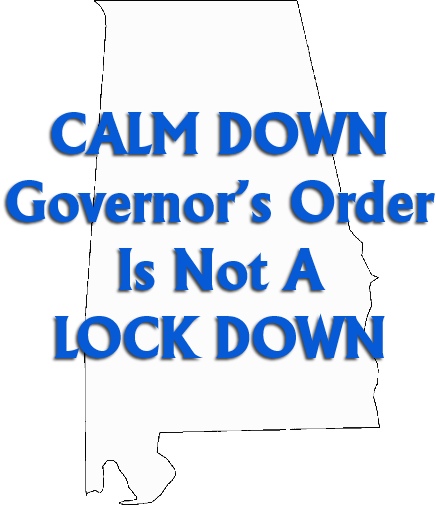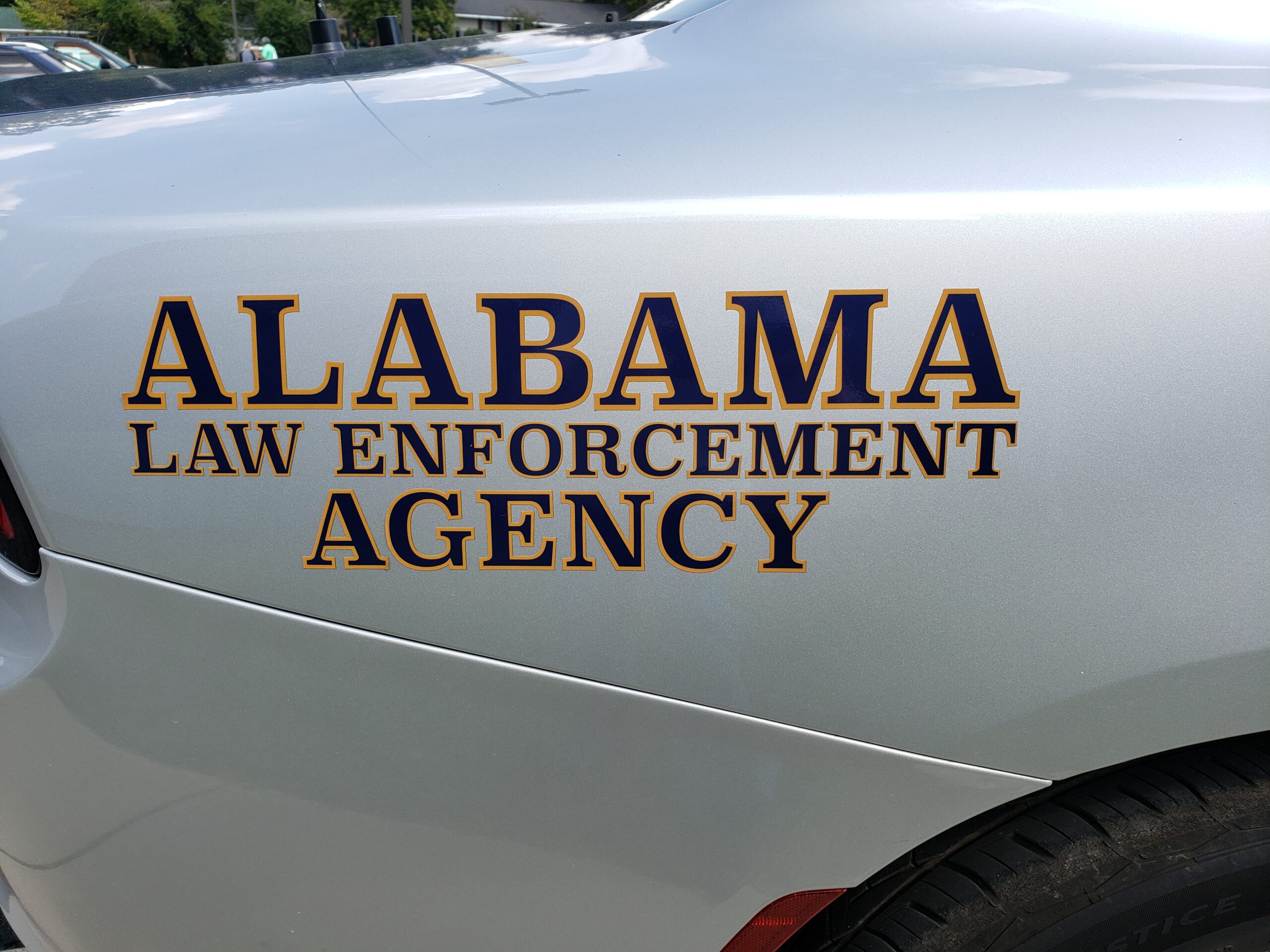The Governor’s order is not a lock-down of the state. Please, everyone calm down. You don’t have to go out and buy 2 months worth of toilet paper. You will still be able to leave your home and do “essential activities”. This means you can still go to the grocery store, buy gas for your vehicle, carry your pet to the vet, go pick up your prescriptions at your pharmacy, go for necessary dental or medical visits, and go outside.
The goal is to get people to stop being in large groups. Don’t take the whole family to the grocery store. When you do go shopping, stay at least 6 feet apart.
This is a very bad, new, virus, for which there is no cure or treatment, at the moment. And officials are trying hard to stop the rapid spread of this virus, before many more die from it. So, help out, it’s not that hard.
Please take the time to share this and **** READ BELOW **** NO, REALLY, READ IT FOR YOURSELF, UNDERSTAND WHAT IT SAYS.
STOP THE PANIC – BUT LETS ALL HELP STOP COVID-19
NOW THEREFORE, THESE PREMISES CONSIDERED, it is ordered that the following Stay at Home order be implemented statewide:
- Effective Saturday, April 4, 2020, at 5:00 P.M., every person is ordered to stay at his or her place of residence except as necessary to perform any of the following “essential activities”:
1
- a. To obtain necessary supplies. A person may leave his or her place of residence to obtain the following supplies for himself or herself, for other household members, including pets, or for a loved one or friend who cannot or should not leave home or cannot care for himself or herself:
- Food and other consumer goods necessary to maintain a person’s daily routine or to maintain the safety, sanitation, and routine operation of a home or residence;
- Supplies needed to work from home;
- Pharmaceutical prescriptions or other medical supplies;
- Fuel for automobiles or other vehicles or other vehicle supplies;
- Materials for distance learning or other education-related purposes; and
- Any other supplies necessary to maintain a person’s or pet’s daily routine or to maintain the safety, sanitation, and routine operation of a home or residence.
- To obtain or provide necessary services. A person may leave his or her place of residence to obtain or provide the following services for himself or herself, for other household members, including pets, or for a loved one or friend who cannot or should not leave home or cannot care for himself or herself:
- Dental, medical, or surgical procedures allowed under paragraph 14 of this Order;
- Government-funded services or benefits;
- Automobile repair services;
- Services vital to the treatment or care of people with physical, intellectual, or developmental disabilities, or people with substance-use disorders;
- Services related to any public or private distance learning activities and education continuity, including all services under education continuity plans approved by the State Superintendent of Education; and
- Any other services necessary to maintain a person’s or pet’s health and safety or to preserve the person’s ability to perform an essential activity as defined in this paragraph.
- To attend religious services. A person may leave his or her place of residence to attend an event that is a religious worship service, wedding, or funeral in either of the following circumstances:
- The event involves fewer than 10 people and the people maintain a consistent six-foot distance from one another; or
2
- (ii) The event is a “drive-in” worship service that adheres to the following rules:
- All participants shall remain in their vehicles for the entirety of the service;
- The participants in each vehicle all share the same place of residence; and
- Participants do not come within six feet of participants in other vehicles.
- To take care of others. A person may leave his or her place of residence to care for a family member, friend, or pet in another household, or to donate blood, or to transport family members, friends, or pets as allowed by this Order.
- To work. A person may leave his or her place of residence to perform work at “essential businesses and operations” as defined in paragraph 2 below or to perform essential work-related activities as follows:
- Work-related activities to maintain the value of a business, establishment, corporation or other organization, such as managing inventory, ensuring security, and processing payroll and employee benefits;
- Work-related activities to enable people to work or shop remotely from their residences or to allow people to buy products through drive-by, curbside, or door-to-door delivery; or
- Work-related activities that do not require any regular interaction within six feet of another person.
- To engage in outdoor activity. A person may leave his or her place of residence to participate in outdoor activity that involves fewer than 10 people so long as the person maintains a consistent six-foot distance from other persons.
- To seek shelter. A person may leave his or her place of residence to seek shelter if required by his or her employment by an “essential service of business” or if his or her residence is unsafe or at imminent risk of becoming unsafe. A person may also leave his or her place of residence to seek help from providers of basic necessities to economically disadvantaged people, such as food pantries.
- To travel as required by law. A person may leave his or her place of residence to travel as required by law enforcement or court order, including the transportation of children required by a custody agreement.
- To see family members. A person may leave his or her place of residence to visit the residence of other persons who are related to him or her.
Anyone leaving his or her home or place of residence as authorized in this order shall take reasonable steps to maintain six feet of separation from other persons.
3
- 2. For the purposes of this Order, “essential businesses and operations” means and
includes:
- Government operations, including public safety and first responders, law enforcement,fire prevention and response, courts and court personnel, military, emergency management personnel, corrections, probation and parole, child protection, child welfare, EMTs, 911 call-center employees, all workers and vendors that support law enforcement and emergency management operations and services, and other federal, state, tribal, or local officials or employees;
- Health-care providers and caregivers, including physicians, dentists, mental health workers, nurses, chiropractors, physical therapists, veterinarians, hospitals/clinics, medical practices, research and laboratory operations, hospice, health care facilities, clinical staff, nursing homes, residential health care facilities, adult day care centers, blood banks, congregate-care facilities, assisted living facilities, elder care, medical wholesale and distribution, home health workers and aides, medical supply and equipment manufacturers and providers, medical waste disposal, hazardous waste disposal, other ancillary healthcare services;
- Infrastructure Operations, including electric, natural gas, and water utilities, nuclear facilities and other generating facilities, utility poles and components, fuel pipelines and transmission systems, petroleum producers, telecommunications, electronic security and life safety services, wireless communication companies, communications sales and customer support, telecommunication and data centers, cybersecurity operations; businesses and other operations concerned with flood control, aviation, and the maintenance, operation, or construction of dams, airports, ports, roads and highways, and mass transit; automotive sales and repair, vehicle rental and taxi services, network providers (such as Uber and Lyft), freight and passenger rail, motor carriers, pipelines, and other transportation infrastructure and businesses, water and waste water systems, transportation companies such as airlines and bus lines, hazardous waste disposal, hotels and commercial lodging services, and RV parks;
- Manufacturing facilities, including food processing and production; companies that produce pharmaceuticals, food additives, medical equipment, medical devices and supplies, technology, biotechnology, chemical products, telecommunications products; automotive production and suppliers, airplane, ship, and space vehicle or rocket manufacturers; companies involved in healthcare, energy, steel and steel products, fuel and petroleum exploration and production, lubricants, greases and engine oils, mining, national defense, sanitary and cleaning products, household products, personal care products, products used by any other Essential Business or Operation;
- Agricultural operations and farms, including food cultivation, livestock, cattle, poultry and seafood operations, transportation of agricultural products, livestock auctions, feedlots, dealers and brokers of livestock, farmer’s markets, feed stores, repairers and suppliers of agricultural equipment, gas, diesel and petroleum suppliers, companies involved with aquaculture, horticulture, and chemicals, including pesticide, herbicide,
4
and fertilizer producers and distributors, forest products businesses, including those involved in forestry operations, logging, manufacture of lumber and paper products; meat processing facilities, rendering facilities and transporters, feed processing facilities, veterinary services;
- Essential retailers, defined as all supermarkets, food and beverage stores, including liquor stores and warehouse clubs, food providers, convenience stores, office-supply stores, bookstores, computer stores, pharmacies, health care supply stores, hardware stores, home improvement stores, building materials stores, stores that sell electrical, plumbing, and heating materials, gun stores, gas stations; auto, farm equipment, bicycle, motorcycle, and boat supply and repair stores, and businesses that ship or deliver groceries, food, and goods directly to residences;
- Restaurants and bars;
- Essential personal services, defined as trash collection, mail and shipping services,home repair, automotive sales and repair; warehouse, distribution and fulfillment centers, kennels, animal shelters, laundromats/laundry service, dry cleaners, childcare facilities, public transportation, and providers of business services including security and payroll; funeral, cemetery, and related services;
- Media operations, including newspapers, digital news sites, television, radio and other media services;
- Education operations, including educators supporting public and private K-12 schools,colleges and universities or other educational institutions, for purposes of facilitating distance learning and education continuity plans approved by the State Superintendent of Education, performing critical research or other essential functions, including public schools preparing and transporting distance-learning materials and meals to eligible students and colleges providing lodging for students (all in compliance with paragraph 12 below);
- Financial services, including banks and related financial institutions, credit unions,payday lenders, businesses that process credit card and other financial transactions, and other services related to financial markets;
- Professional Services, including legal services, accounting services, insurance services,real estate services (including appraisal and title services);
- Providers of basic necessities to economically disadvantaged populations including businesses, religious and secular non-profit organizations, food banks, homeless shelters and congregate-care facilities;





